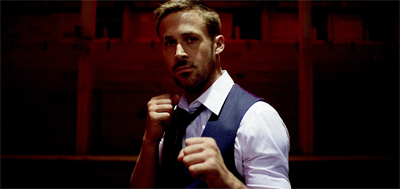There is something uniquely American about the space programme.
Of course, America is not the only country that went into space. China has successfully launched a man into space, and India is planning to launch another person within a few years. America was not even the first country to launch a man into space. Many of the important “firsts” in space travel were claimed by the Soviet Union; the first dog launched into space, the first man launched into space, the first orbit of the planet, the first space-walk. In hindsight, America’s claim to winning the space race might not be that they went first, but that they went furthest.

Nevertheless, the space race is an important and defining part of American identity. It might be because the United States won the Cold War, and this sort of journey is perfectly representative of a symbolic victory in an ideological war. It might be because the space race sits so perfectly within the American self-image, the logical extension of distinctly American concepts like the limitless (whether “new” or “final”) frontier or “manifest destiny.” It may simply be that the United States is a country very keenly focused on its future, and that reach towards the sky is the ultimate push towards the future.
It is almost impossible to separate the space race, at least historically, from American identity. Even the utopian postnational future of the Star Trek franchise is very consciously filtered through an American lens. (Jean-Luc Picard, the franchise’s only non-American lead, is a delightfully hazy mix of vague European clichés including a taste for tea and British accent, against a French name and ownership of a vineyard.) To be fair, modern space-set stories like The Europa Report or Doctor Who or Sunshine tend to place a greater emphasis on international cooperation, but space is till seen as a primarily American concern.

When British-American director Christopher Nolan decided to make a movie about the space race in Interstellar, he steeped it in Americana. The film was not only about a mission organised by NASA, but the entire film was steeped in Americana that suggested the whole enterprise was inseparable from American identity; baseball games, tales of the Great Depression, the corn fields of rural America, even the soothing Texas accent of Matthew McConaughey. A charming piece of retrofuturism, of nostalgia for how we used to look at the future, Interstellar was an ode to the space race as a defining part of American identity.
This makes sense. Many of the images and signifiers of space are still tied specifically to the United States. After all, it is estimated that almost fifteen percent of the world’s population watched the moon landing, a defining moment of American triumph. The image of the American flag planted on the lunar surface is one of the most iconic images of the twentieth century, inexorably tying the moon mission to ideas of nationalist endeavour and triumph. Like Antarctica, the moon might theoretically exist beyond the claims of any one government, but it’s also impossible to separate it from that image of the flag.

This perhaps explains why the decision not to show the planting of that flag in First Man has been so controversial, quite aside from the general (and exhausting) trend towards politicisation of everything. The moon landing is so casually and so straightforwardly accepted as a triumph of American nationalism that even eluding a part of the story that everybody knows anyway is treated as an affront. The response to this artistic decision treats it as a betrayal to American identity and an attempted erasure of what is a fundamental part of this story.
However, there is something very interesting in the way that First Man approaches the nationalism inherent in the space race, and the movie’s decision to place its emphasis elsewhere feels like a very pointed (and very timely) shift of focus on one of the defining narratives of the American century.

Continue reading →
Filed under: On Second Thought | Tagged: 2001: a space odyseey, apollo 13, damien chazelle, First Man, moon landing, NASA, nationalism, Ryan Gosling, space, space race, the alt-right, the right stuff, whitey's on the moon | Leave a comment »
































